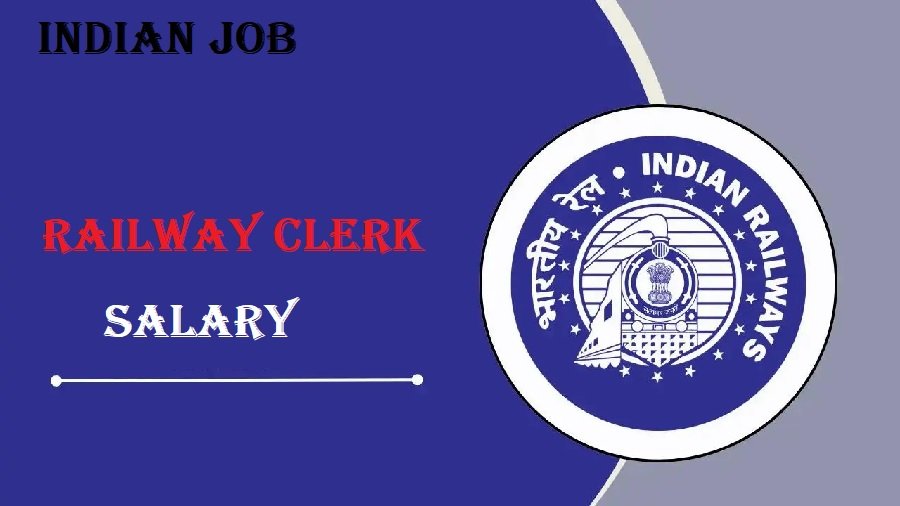Railway clerk Salary play an essential role in the functioning of the railway system, assisting with administrative tasks, ticketing, customer service, and a variety of other responsibilities. Understanding their salary is crucial for anyone considering a career in this field or for those looking to gain insight into the compensation structure of government or private sector railway jobs.
Overview of Railway Clerk Job
Railway clerks work in both government-owned and private railway companies. Their duties can vary but typically involve tasks such as managing schedules, assisting passengers, processing ticket sales, and handling administrative functions within the railway system. A railway clerk is usually employed in the administrative department of a railway station or office.
Key Responsibilities of a Railway Clerk
Some of the main duties of a railway clerk include:
- Processing and issuing tickets for passengers.
- Handling customer queries and resolving complaints.
- Maintaining records of ticket sales, schedules, and other administrative tasks.
- Monitoring and updating train schedules and station services.
- Coordinating with other railway departments to ensure smooth operation.
Railway Clerk Salary Structure
The salary of a railway clerk depends on various factors such as the country of employment, the railway company (government or private), experience, job location, and specific responsibilities assigned to the position.
Average Salary Range for Railway Clerks
On average, the salary of a railway clerk ranges between $25,000 and $40,000 per year. However, this can vary based on experience and location. In some cases, railway clerks working in metropolitan areas may earn more due to the higher cost of living and demand for services.
Here is a table highlighting the average salary range for railway clerks across different regions and sectors:
| Country | Government Railway Clerk Salary (Annual) | Private Railway Clerk Salary (Annual) |
|---|---|---|
| United States | $30,000 – $45,000 | $28,000 – $42,000 |
| United Kingdom | £18,000 – £30,000 | £20,000 – £32,000 |
| India | ₹3,00,000 – ₹5,00,000 | ₹2,50,000 – ₹4,50,000 |
| Australia | $40,000 – $55,000 | $35,000 – $50,000 |
| Canada | $35,000 – $50,000 | $30,000 – $45,000 |
Factors Affecting Railway Clerk Salary
Several factors influence the salary of a railway clerk:
- Location: Salaries tend to be higher in major cities or railway hubs due to the increased cost of living and demand for skilled personnel.
- Experience: More experienced railway clerks typically receive higher salaries. Those who have been in the field for several years often have the opportunity to move into supervisory or specialized roles, which come with higher pay.
- Government vs. Private Sector: Railway clerks working for government-owned railway systems may receive better benefits and job security, but their base salary can sometimes be lower compared to those working for private companies that offer higher wages to attract skilled workers.
Additional Benefits and Allowances
Besides the salary, railway clerks are often entitled to various allowances and benefits, which can significantly increase their overall compensation. These may include:
- Health insurance: Most government and private railway companies provide health coverage to their employees.
- Retirement benefits: Pension schemes are common, especially for clerks working in government-run railways.
- Travel allowances: Some railway companies offer free or discounted travel for their employees and their families.
- Bonuses: Depending on the performance and company policies, bonuses and performance incentives may be offered.
Career Growth for Railway Clerks
The career path of a railway clerk is typically structured, offering opportunities for advancement:
Entry-Level Positions
New railway clerks start in basic roles, typically involving routine administrative tasks and customer service responsibilities. These entry-level positions provide training and hands-on experience in the railway system, preparing them for more senior roles.
Mid-Level Positions
With experience, railway clerks can move into positions such as Senior Railway Clerk, Assistant Station Master, or Customer Service Supervisor. These positions typically come with more responsibilities and higher pay.
Senior-Level Roles
Experienced railway clerks who show leadership potential can advance to managerial roles, including Station Master, Operations Manager, or even Railway Administration Officer. These roles carry greater responsibilities, and salaries can go up significantly.
Salary Comparison with Other Railway Jobs
In comparison to other railway-related jobs, the salary of a railway clerk is generally moderate. Here’s how it compares to other common railway positions:
| Job Title | Average Annual Salary |
|---|---|
| Train Driver | $60,000 – $80,000 |
| Railway Engineer | $70,000 – $100,000 |
| Station Master | $40,000 – $60,000 |
| Railway Clerk | $25,000 – $40,000 |
As shown, positions like train driver and railway engineer command significantly higher salaries due to the technical skills and responsibilities required. However, the role of a railway clerk is an excellent entry point for those interested in railway operations, with steady career growth potential.
Final Thoughts of this article
Becoming a railway clerk can offer a stable career with the potential for growth and a reasonable salary. With factors such as experience, location, and the sector (public or private) influencing pay, those considering this path should evaluate all the aspects before making a decision. Railway clerks can expect a rewarding career in a vital and expanding industry, with various allowances and benefits adding to the appeal of this role.
Disclaimer: The information provided here is for general informational purposes and may vary based on specific regions, railway companies, or current employment trends. Always consult official sources or employers for accurate and up-to-date salary details.
